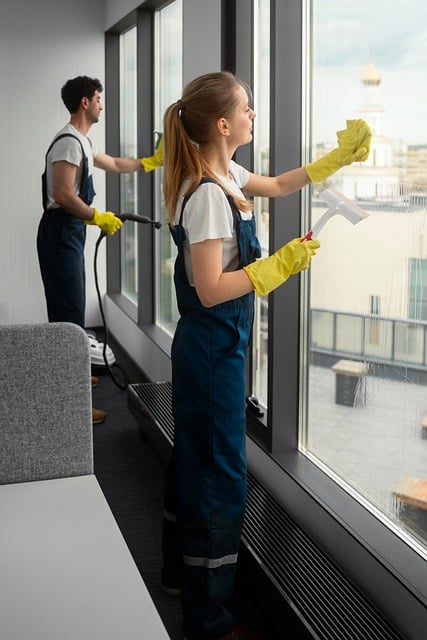The Value of Professional Cleaning Work: Beyond Surface Cleanliness
Professional cleaning work goes far beyond wiping tables or sweeping floors—it’s about creating a safe, healthy space for everyone to live and work in. For busy families, office teams, or business owners, relying on skilled cleaners means no more worrying about hidden dust in vents, sticky kitchen counters, or unsanitized restrooms. These workers combine attention to detail with efficient methods, turning daily cleaning tasks into a foundation for a better quality of life. This article dives into the key aspects of professional cleaning work, its impact on daily life, and how it differs from casual cleaning efforts.

Professional cleaning is a vital service industry that supports public health, workplace productivity, and quality of life. From office buildings and hospitals to private homes and educational institutions, trained cleaning professionals ensure that spaces remain safe, hygienic, and welcoming. This work demands more than basic housekeeping knowledge—it requires expertise in sanitation protocols, chemical handling, equipment operation, and customer service. The value of professional cleaning extends into every corner of daily life, often in ways that go unnoticed until the service is absent.
What Professional Cleaning Work Covers
Professional cleaning encompasses a wide range of tasks and specializations. Residential cleaning services typically include dusting, vacuuming, mopping, bathroom sanitization, kitchen cleaning, and organization. Commercial cleaning expands to include floor care such as stripping and waxing, window washing, carpet cleaning, and waste management. Specialized sectors like healthcare facilities require knowledge of infection control procedures, while industrial cleaning may involve handling hazardous materials or operating heavy-duty equipment.
Many professional cleaners also provide deep cleaning services that address areas often overlooked in routine maintenance. This includes cleaning behind appliances, sanitizing high-touch surfaces, removing mold and mildew, and restoring neglected spaces. Green cleaning practices have become increasingly important, with many professionals trained in using environmentally friendly products and methods that reduce chemical exposure while maintaining effectiveness. The scope of professional cleaning work continues to evolve with new technologies, including electrostatic disinfection and HEPA filtration systems.
The Skills That Make a Good Cleaner
Effective professional cleaning requires a diverse skill set that combines physical capability with technical knowledge and interpersonal abilities. Physical stamina is essential, as the work often involves standing for extended periods, lifting equipment, bending, reaching, and repetitive motions. Time management skills allow cleaners to complete tasks efficiently while maintaining quality standards, particularly when working within tight schedules or managing multiple locations.
Attention to detail distinguishes exceptional cleaners from adequate ones. This means noticing overlooked areas, identifying potential maintenance issues before they become problems, and consistently delivering thorough results. Technical knowledge includes understanding which cleaning agents work best for different surfaces, how to operate specialized equipment safely, and following proper sanitation protocols. Many professional cleaners also develop strong customer service skills, as they frequently interact with clients, respond to specific requests, and adapt their approach to meet individual preferences.
Reliability and trustworthiness are equally important, particularly for residential cleaners who often work in private homes with minimal supervision. Professional cleaners must demonstrate integrity, respect client privacy, and maintain confidentiality. Problem-solving abilities help cleaners address unexpected challenges, from stubborn stains to equipment malfunctions, without compromising service quality.
How Cleaning Work Improves Daily Life
The impact of professional cleaning work extends far beyond aesthetic improvements. In healthcare settings, proper cleaning and disinfection directly reduce the spread of infections and protect vulnerable populations. Studies have consistently shown that thorough environmental cleaning decreases healthcare-associated infections, contributing to better patient outcomes and reduced medical costs. In educational environments, clean classrooms and facilities support student health and create conducive learning conditions.
Workplace cleanliness significantly affects employee productivity, morale, and health. Clean offices reduce sick days by minimizing the spread of germs and allergens. Organized, well-maintained workspaces also contribute to mental clarity and job satisfaction. For businesses, professional cleaning helps maintain a positive image, ensuring that clients and customers feel comfortable and confident in the environment.
In residential settings, professional cleaning services provide homeowners with more time for family, hobbies, and rest. For elderly individuals or those with disabilities, professional cleaning support enables independent living by maintaining safe, sanitary home environments. The mental health benefits of living in a clean space are well-documented, with clutter and dirt contributing to stress and anxiety. Professional cleaners help create peaceful, organized homes that support overall wellbeing.
The Professional Cleaning Industry Landscape
The professional cleaning industry encompasses various employment models and service providers. National franchise operations offer standardized services with established training programs and quality assurance systems. Local independent cleaning businesses provide personalized service and flexibility, often building long-term relationships with clients. Facility management companies employ in-house cleaning teams for large commercial properties, while contract cleaning services offer specialized expertise for specific industries.
Many cleaning professionals work as independent contractors, setting their own schedules and building their own client bases. Others prefer the stability of employment with established companies that provide benefits, training, and consistent work assignments. The industry continues to grow, driven by increased awareness of hygiene importance, busier lifestyles, and aging populations requiring assistance with home maintenance.
Training and Professional Development
While entry into professional cleaning work often requires minimal formal education, ongoing training and certification enhance skills and career prospects. Organizations such as the International Sanitary Supply Association and the Building Service Contractors Association International offer certification programs covering topics from basic cleaning techniques to advanced facility management. Specialized training is available for areas like infection prevention, green cleaning, and restoration services.
Many employers provide on-the-job training covering company procedures, safety protocols, and equipment operation. Experienced cleaners may advance to supervisory roles, quality control positions, or start their own businesses. Professional development opportunities include learning new technologies, staying current with industry standards, and developing business management skills for those pursuing entrepreneurship.
Conclusion
Professional cleaning work represents far more than surface-level tidying. It requires specialized skills, physical endurance, technical knowledge, and dedication to creating healthier environments. The profession directly impacts public health, workplace productivity, and quality of life across all sectors of society. As awareness grows regarding the importance of sanitation and hygiene, the value of professional cleaning work becomes increasingly clear. Those who perform this essential service deserve recognition for their contributions to community wellbeing and the smooth functioning of countless facilities and homes.




